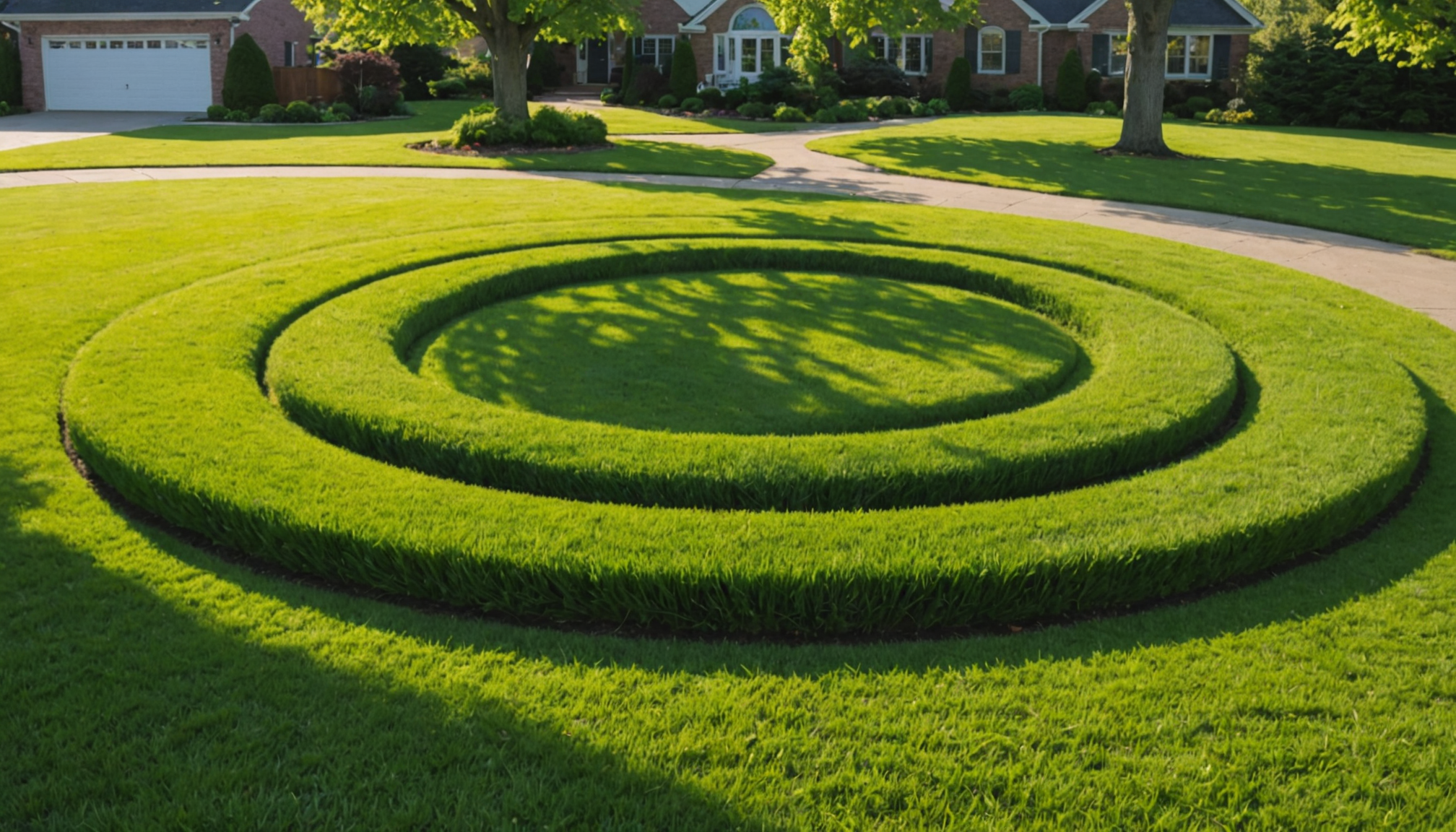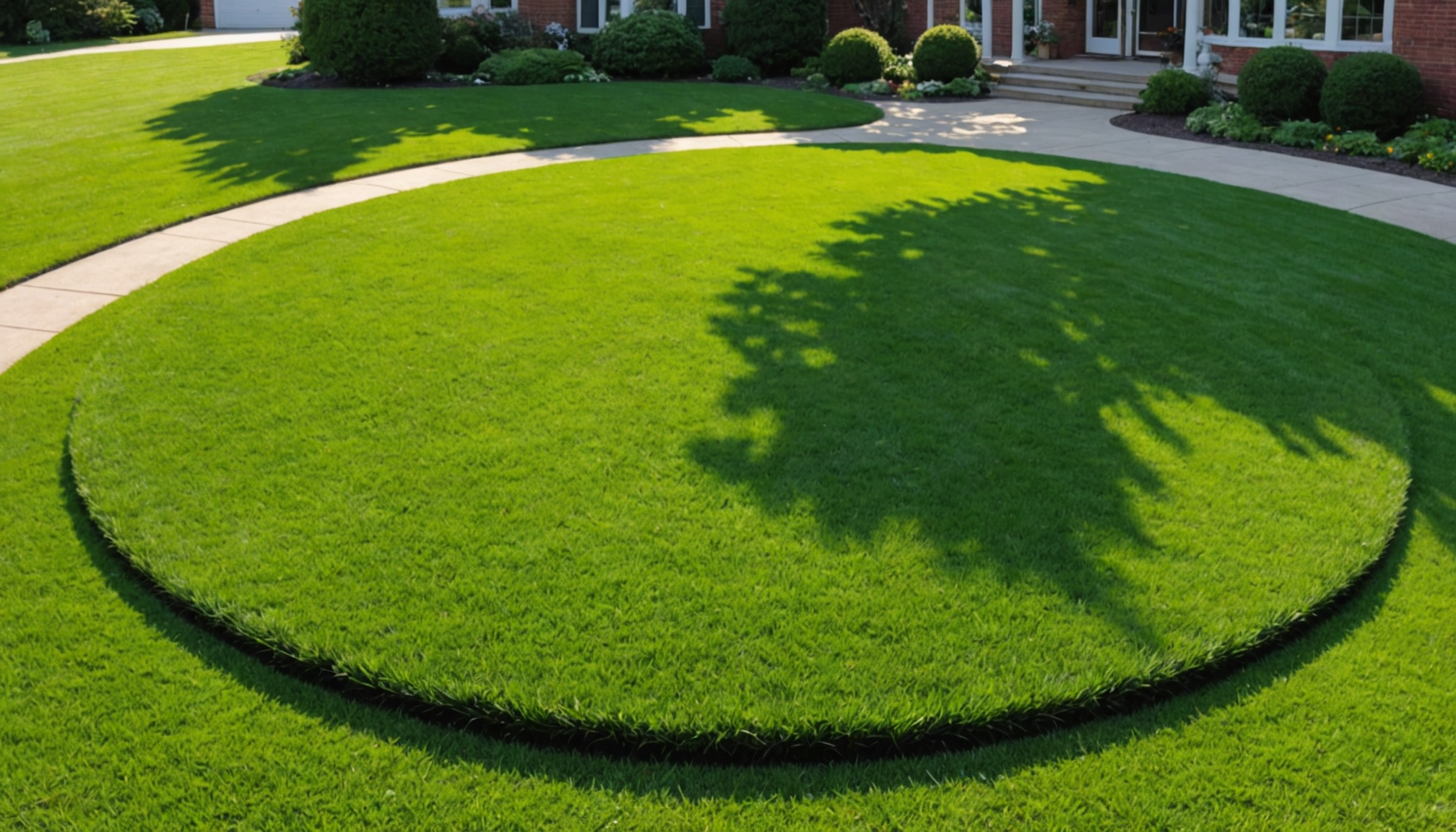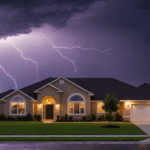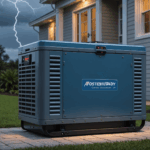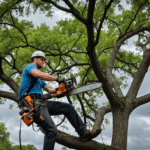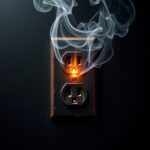Orlando homeowners need to stay vigilant for early warning signs of sinkhole formation, as Florida experiences more sinkholes than any other U.S. state. According to the Florida Department of Environmental Protection, approximately 6,500 sinkhole incidents were reported between 2006 and 2010. Recognizing these warning signs early can prevent catastrophic property damage and ensure family safety.
The most obvious indicators include circular depressions in your yard or sudden slumping of the ground. If you notice trees or fence posts that begin to lean or tilt unexpectedly, this could signal underground soil movement. The Florida Geological Survey emphasizes that even small changes in ground elevation should never be ignored.
- Cracks in interior walls, especially if they appear suddenly or widen over time
- Doors and windows that become difficult to open or close
- New cracks in foundation or floor slabs
- Circular patches of wilting vegetation
- Pools of water appearing in unusual places after rain
- Unexplained depressions in the yard or pavement
Inside your home, be alert for separation between walls and ceilings, or walls and floors. According to Orlando-based structural engineers, stair-step cracks in block walls are particularly concerning, as they often indicate foundation movement. You might also notice floors becoming uneven or developing dips.
More subtle signs include unexplained murky well water, which can indicate underground soil movement, or unusual sounds like cracking or popping in the structure. The University of Florida’s Department of Geological Sciences reports that these acoustic warnings often precede visible damage by several days or weeks.
In the bathroom and kitchen, watch for plumbing issues that could indicate ground shifting. These might include pipes that break frequently, soil washing into your foundation, or sudden drainage problems. Multiple fixtures experiencing problems simultaneously often signals potential sinkhole activity beneath your property.
Areas most vulnerable to sinkholes
Central Florida’s limestone bedrock makes Orlando particularly susceptible to sinkhole formation, with certain areas facing higher risks than others. The regions most vulnerable typically sit atop what geologists call “karst terrain,” where limestone dissolves easily under acidic groundwater conditions. According to the Florida Geological Survey, areas near Lake Conway and the Conway Chain of Lakes show increased sinkhole activity.
Properties built on former wetlands or areas with thick layers of sandy soil above limestone face elevated risks. The Butler Chain of Lakes region, particularly in southwest Orlando, has historically documented numerous sinkhole occurrences. These areas often experience more foundation issues due to the unstable geological composition beneath the surface.
Neighborhoods near major water bodies or those with significant groundwater pumping activities face additional risks. The Dr. Phillips area and portions of MetroWest have reported increased sinkhole activity, especially during periods of dramatic water table fluctuations. These fluctuations, common during Florida’s wet and dry seasons, can accelerate limestone dissolution.
Development patterns also influence sinkhole formation. Areas with extensive construction or where significant changes to natural drainage patterns have occurred often show higher incident rates. The University of Central Florida’s geological studies indicate that regions along the I-4 corridor experience more frequent sinkhole activity due to the combination of natural geological factors and human-induced changes to groundwater patterns.
- Properties within 500 feet of existing sinkholes face higher risk of future formation
- Areas with shallow limestone bedrock (less than 30 feet from surface) are more susceptible
- Locations with rapid groundwater level changes show increased sinkhole activity
- Properties near major water retention or drainage systems require extra monitoring
When to call professionals
Many Orlando homeowners make critical mistakes when dealing with potential sinkhole issues, often waiting too long to contact professionals or attempting DIY fixes that can worsen the situation. Professional assessment becomes essential when you observe multiple warning signs or significant changes to your property structure.
Contact a licensed geological or geotechnical engineer immediately if you notice:
– Multiple cracks appearing in your foundation within a short time
– Rapid ground depression development (more than 2 inches in 24 hours)
– Structural damage combined with ground deformation
– Sudden settlement causing severe tilting of your home
– Water pooling in new areas combined with foundation cracks
A common misconception is that homeowners’ insurance will deny coverage if they report early warning signs. However, most Florida insurance providers prefer early intervention, as it significantly reduces repair costs and safety risks. Document all changes with photos and dates before calling professionals to support potential claims.
Never attempt to fill a developing sinkhole with sand or concrete yourself – this can mask underlying issues and create more dangerous conditions. Professional testing methods, including ground penetrating radar and soil boring, are necessary to determine the full extent of the problem.
If you’re unsure whether to call professionals, consider these factors:
– Multiple warning signs appearing simultaneously
– Changes occurring rapidly (within days rather than months)
– Safety concerns for occupants
– Proximity to your home’s foundation (within 20 feet)
– Water-related issues combined with structural changes
Remember that legitimate sinkhole professionals should be licensed by the state of Florida and have specific experience with Central Florida’s geological conditions. Be wary of contractors who offer quick fixes or unusually low-cost solutions without proper testing.
The Florida Department of Environmental Protection recommends obtaining at least three professional opinions for significant sinkhole concerns, especially when structural integrity is at risk. This helps ensure accurate assessment and appropriate remediation strategies while avoiding potential scams or inadequate repairs.
Immediate safety measures
If you discover potential sinkhole activity on your property, implementing immediate safety measures can protect both lives and property. Your first priority should be establishing a clear safety perimeter around any visible depressions or compromised areas. Use bright-colored tape or temporary fencing to maintain a minimum 30-foot buffer zone around suspicious areas, especially in Orlando’s unpredictable weather conditions.
Immediately document all visible changes with photographs and detailed notes, including measurements and timestamps. This documentation proves invaluable for insurance claims and professional assessments. If you notice foundation movement or structural concerns, discontinue use of affected areas of your home until professionals can evaluate the situation.
Take these critical steps to protect your household:
• Shut off utilities if you suspect any damage to water, gas, or electrical lines
• Remove valuable items from areas showing signs of structural stress
• Create an emergency evacuation plan and share it with all family members
• Monitor the affected area from a safe distance for any changes
• Keep children and pets away from suspicious areas
• Relocate vehicles and outdoor equipment away from depression zones
If water is pooling or disappearing into the ground, redirect any drainage away from the affected area. However, avoid using heavy equipment near potential sinkholes, as additional weight can trigger further collapse. In cases where safety is seriously compromised, don’t hesitate to temporarily relocate until professional assessment confirms it’s safe to return.
During severe weather events, which can accelerate sinkhole formation, maintain increased vigilance and check your property more frequently. Keep emergency supplies readily available, including:
• Battery-powered lighting
• Important documents in waterproof containers
• Basic tools for securing property
• Emergency contact information
• First aid supplies
• Portable water supply
Remember that protecting lives takes precedence over property. If you observe rapid changes or feel unsafe, evacuate immediately and contact emergency services. By staying alert and responding quickly to warning signs, you can significantly reduce risks associated with Florida’s challenging geological conditions.
Taking these precautions isn’t just about protecting your property – it’s about ensuring your family’s safety in Orlando’s unique geological environment. Stay proactive, remain vigilant, and don’t hesitate to act when safety concerns arise.
Emergency contact information
- Who should I call first if I discover a sinkhole on my Orlando property?
- Your first call should be to your local emergency management office at 407-836-9140. They can assess immediate safety risks and coordinate with necessary emergency responders if required.
- Does my Orlando homeowner’s insurance cover sinkhole damage?
- Florida law requires insurance companies to offer sinkhole coverage, though it may be an additional rider to your policy. Contact your insurance provider immediately at your policy’s emergency number to verify coverage and initiate a claim.
- What’s the contact information for Orlando’s Geological Survey office?
- The Florida Geological Survey’s Orlando office can be reached at 850-488-4191. They maintain databases of sinkhole incidents and can provide historical information about sinkhole activity in your area.
- How do I report a suspected sinkhole on public property in Orlando?
- Contact Orlando’s Public Works Department at 407-246-2283 for sinkholes on public property. For after-hours emergencies, call the City’s Emergency Operations Center at 407-246-4357.
- Which agencies handle foundation assessments for sinkhole damage in Orlando?
- Contact the Florida Department of Business and Professional Regulation at 850-487-1395 to verify licensed geological and geotechnical engineers. The Central Florida Chapter of Professional Engineers (407-425-2811) can also provide referrals to qualified professionals.
